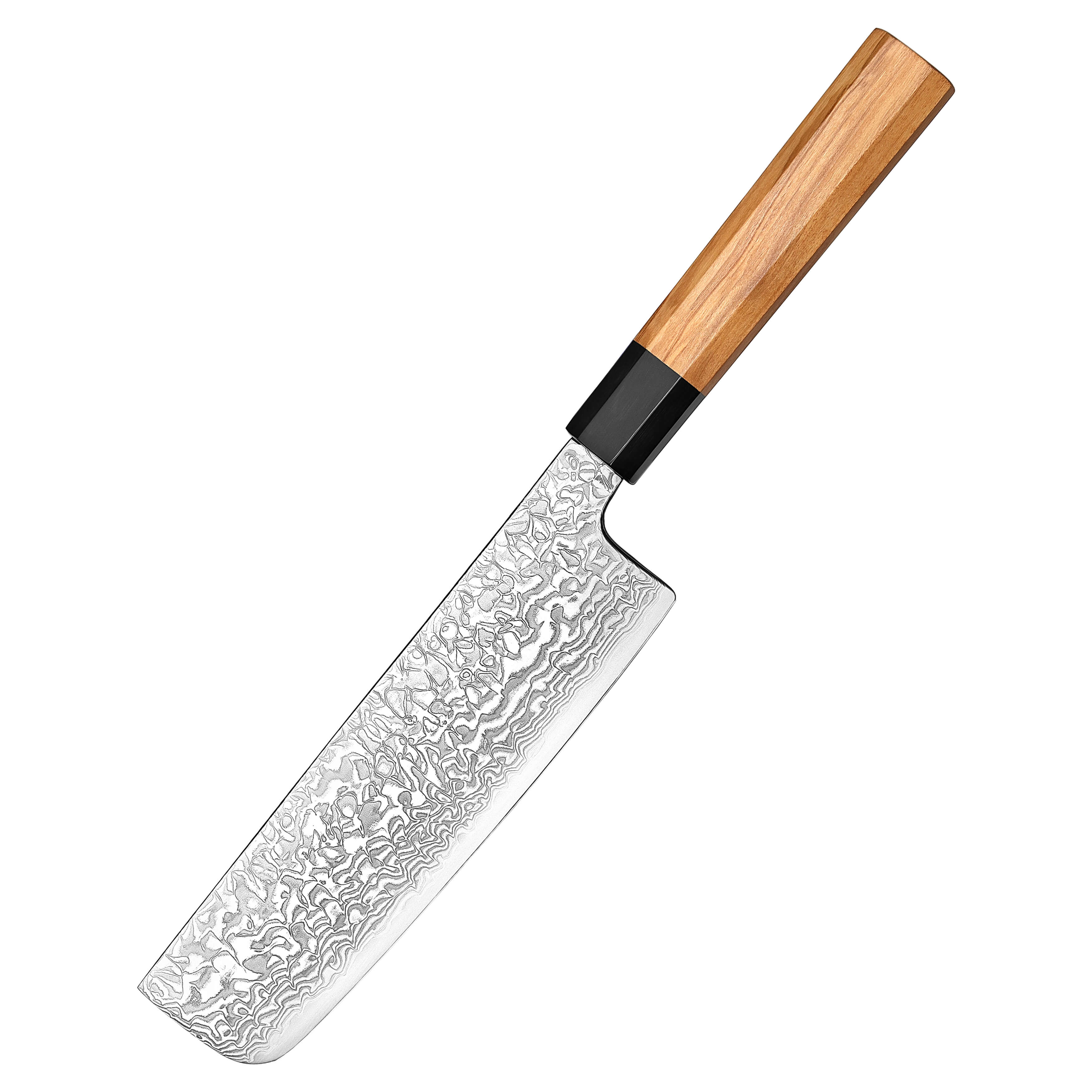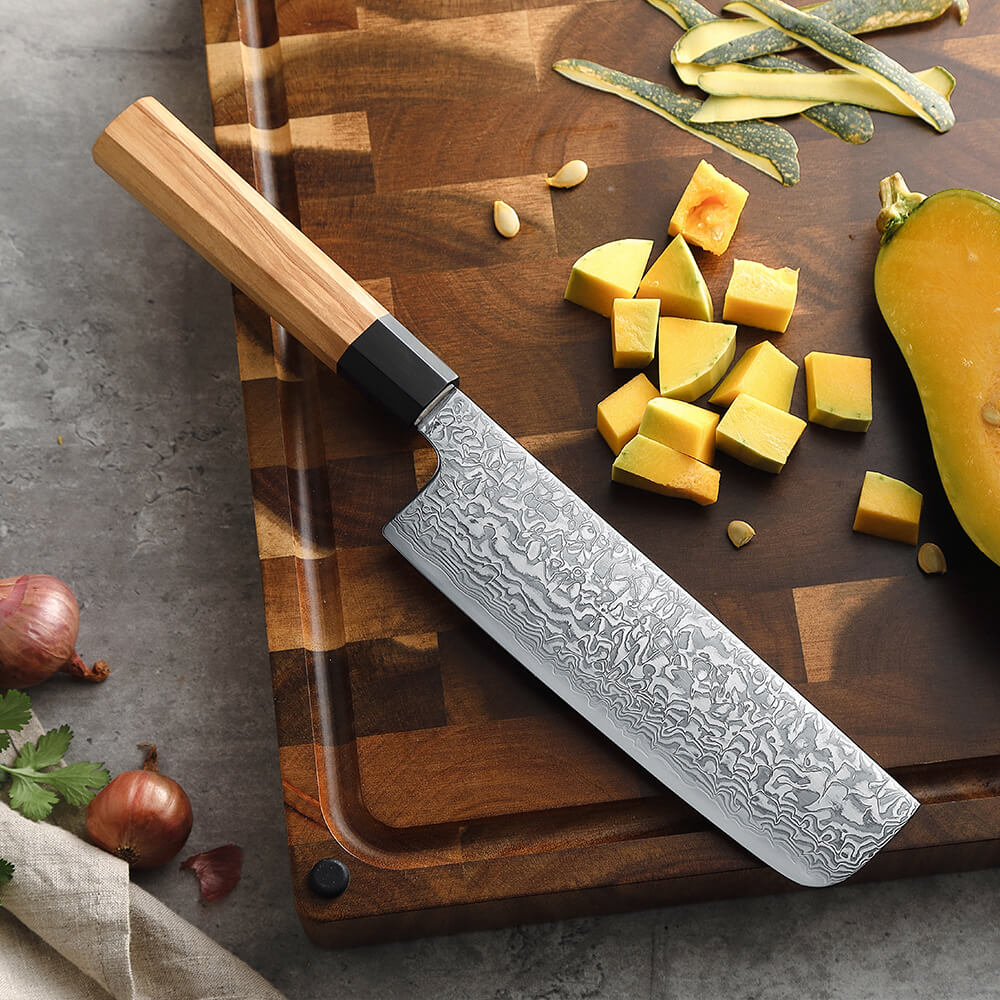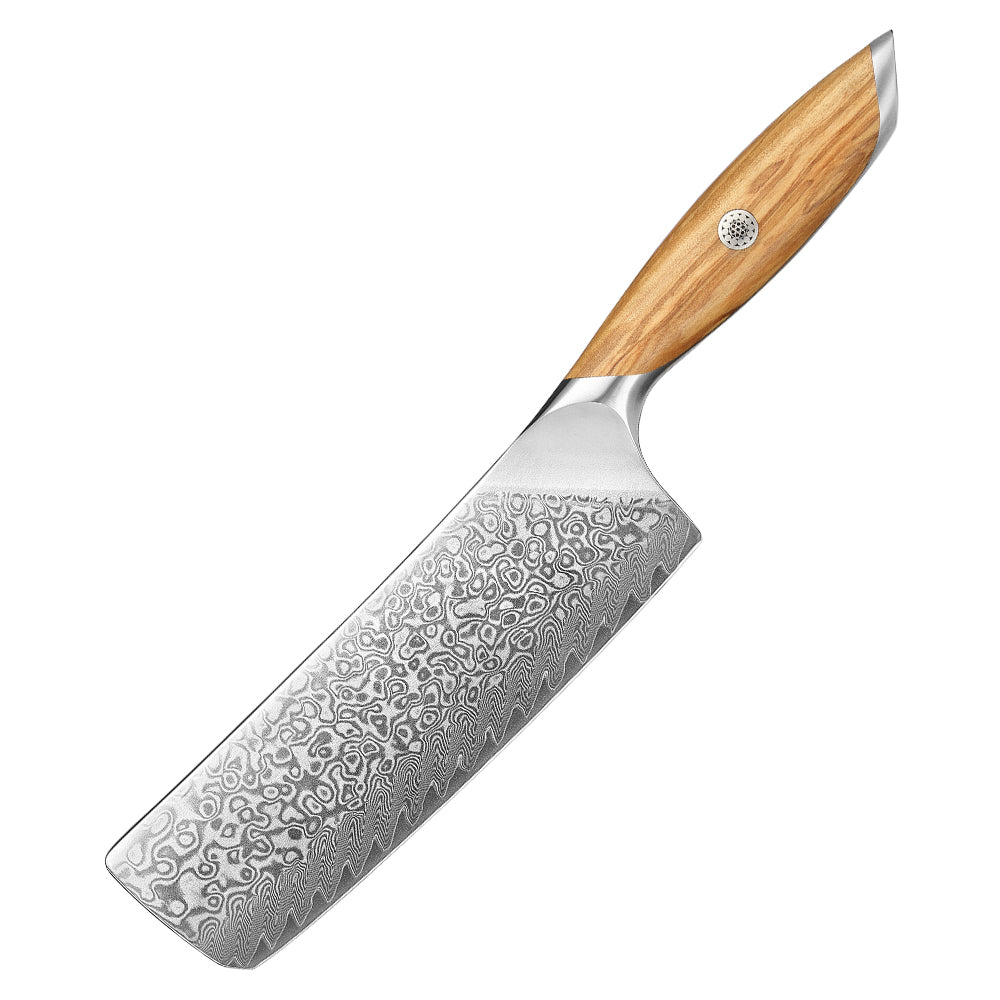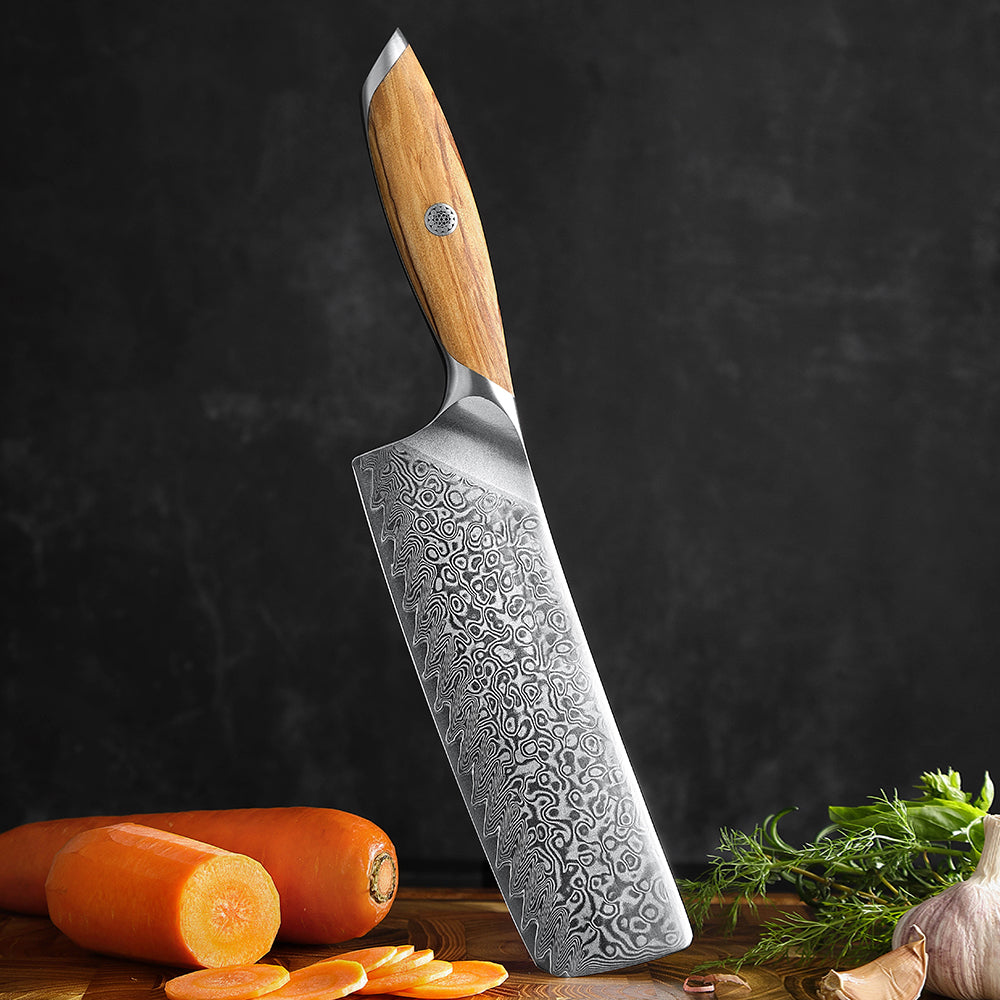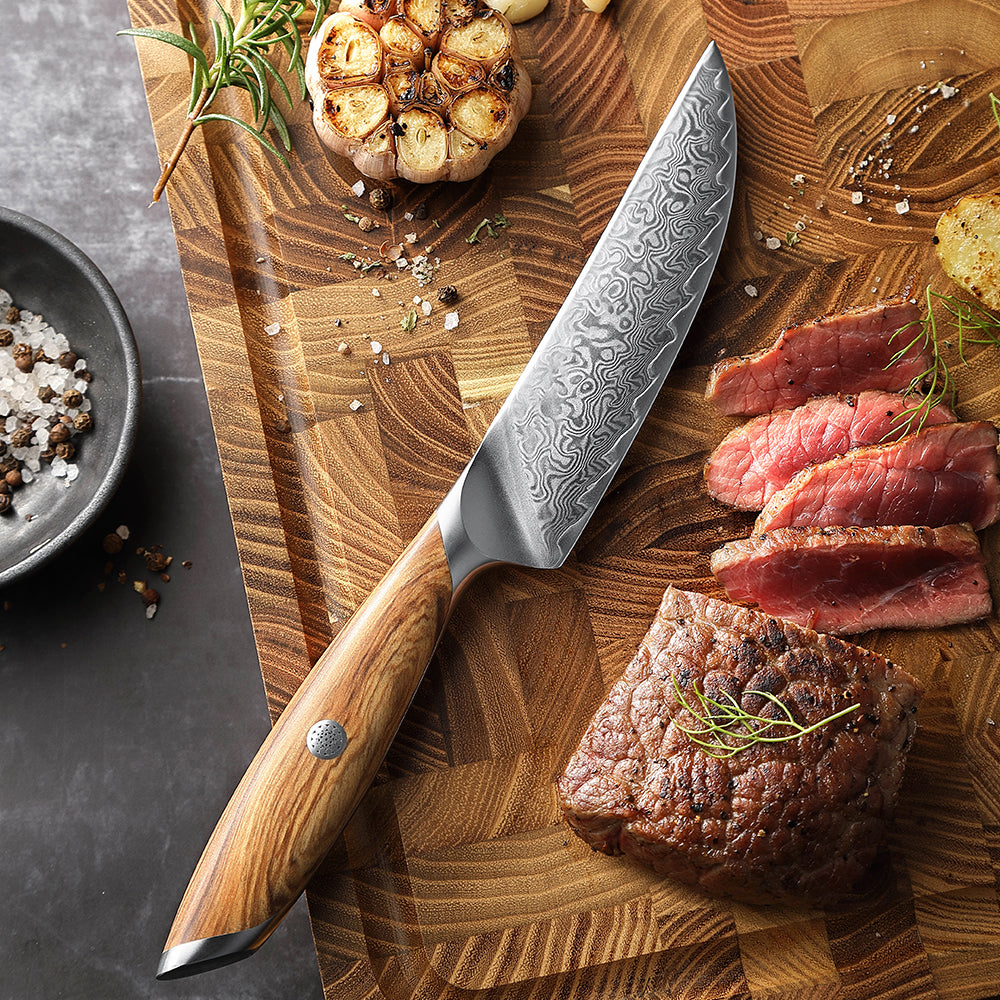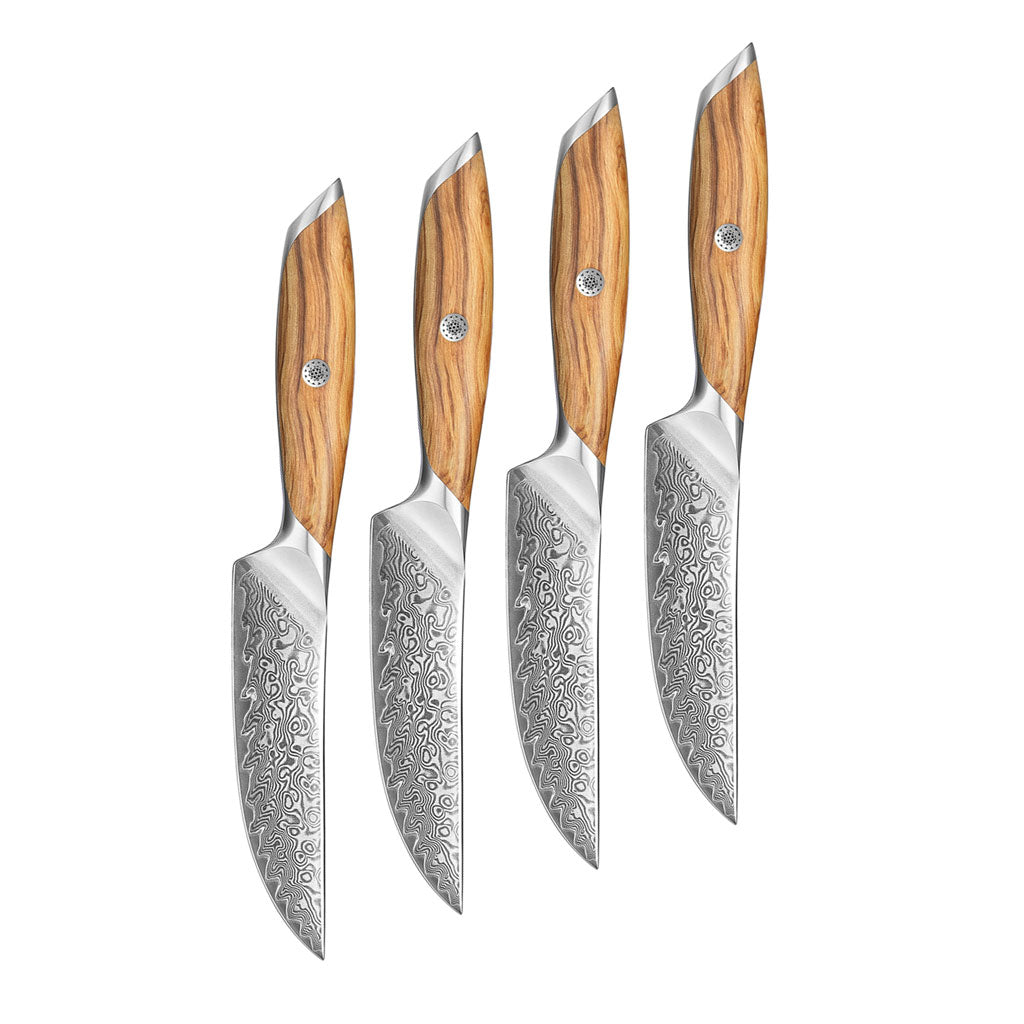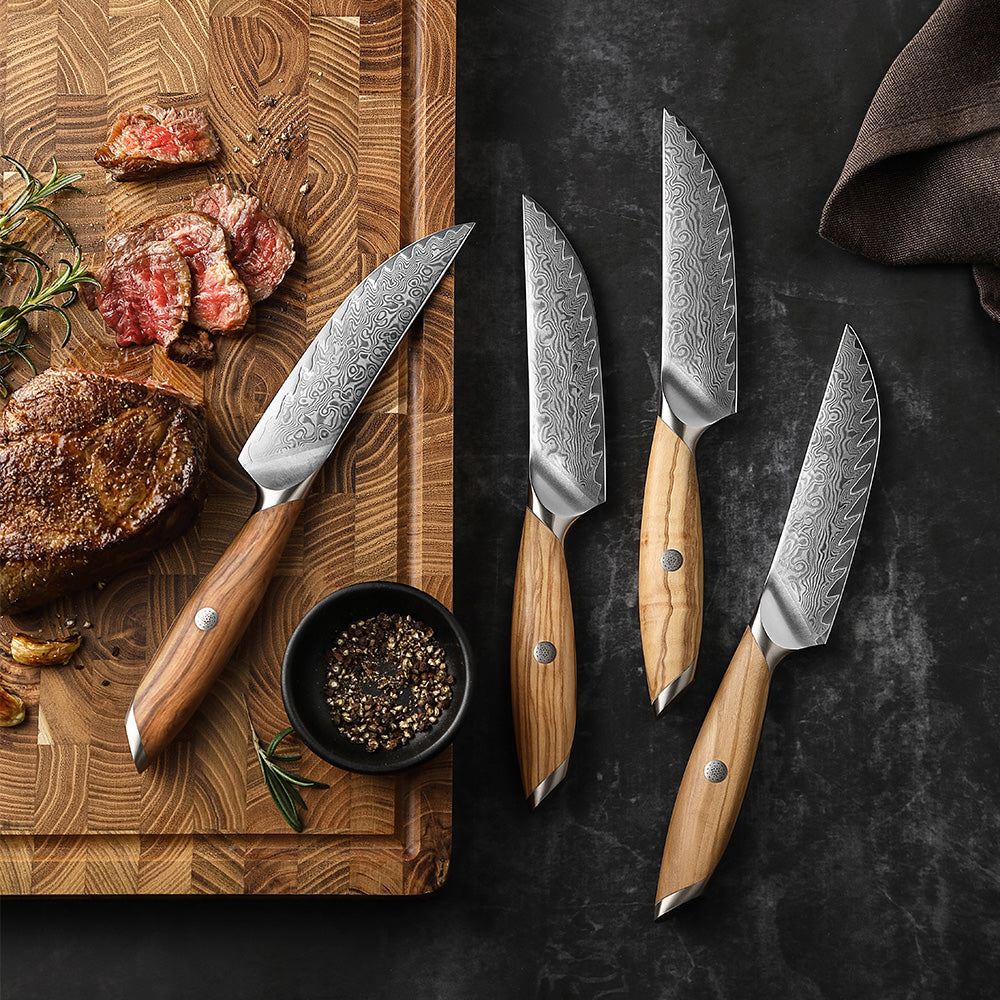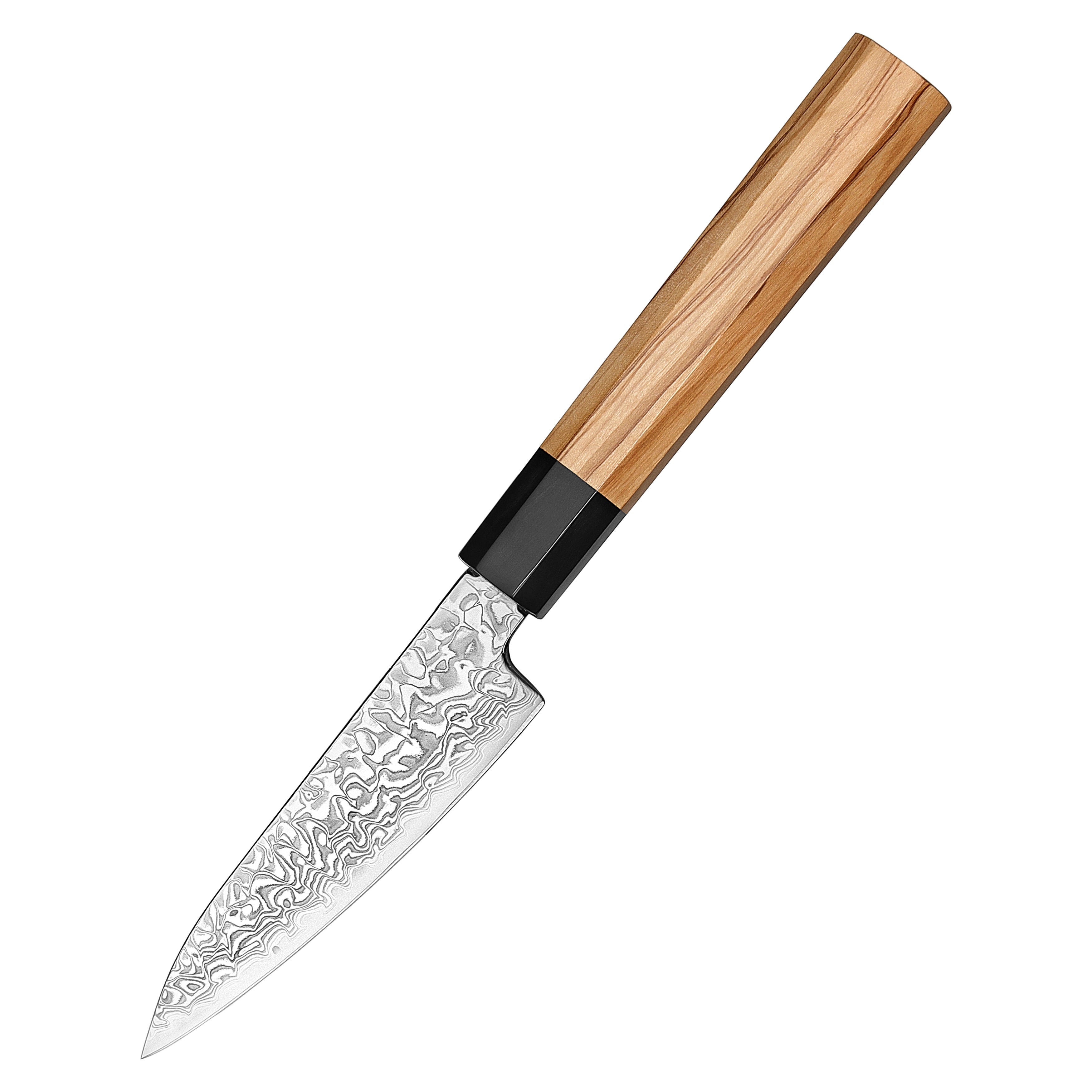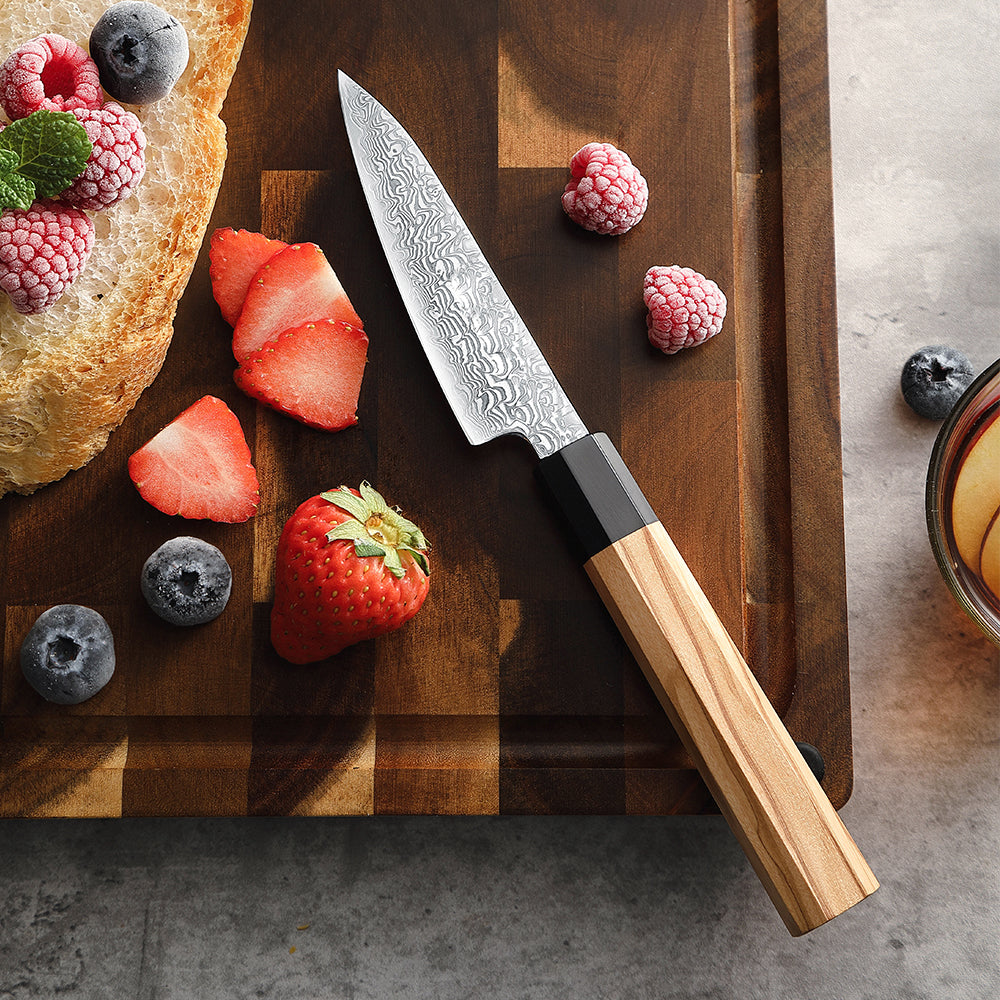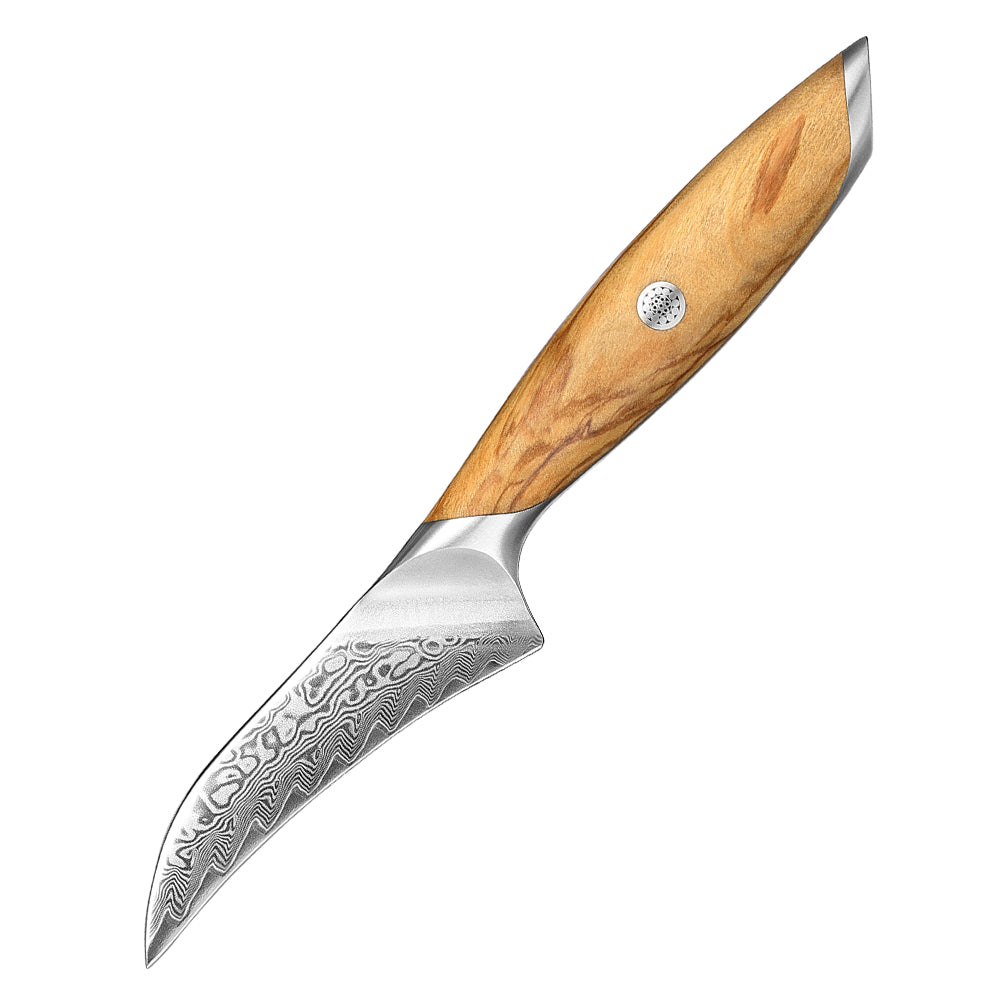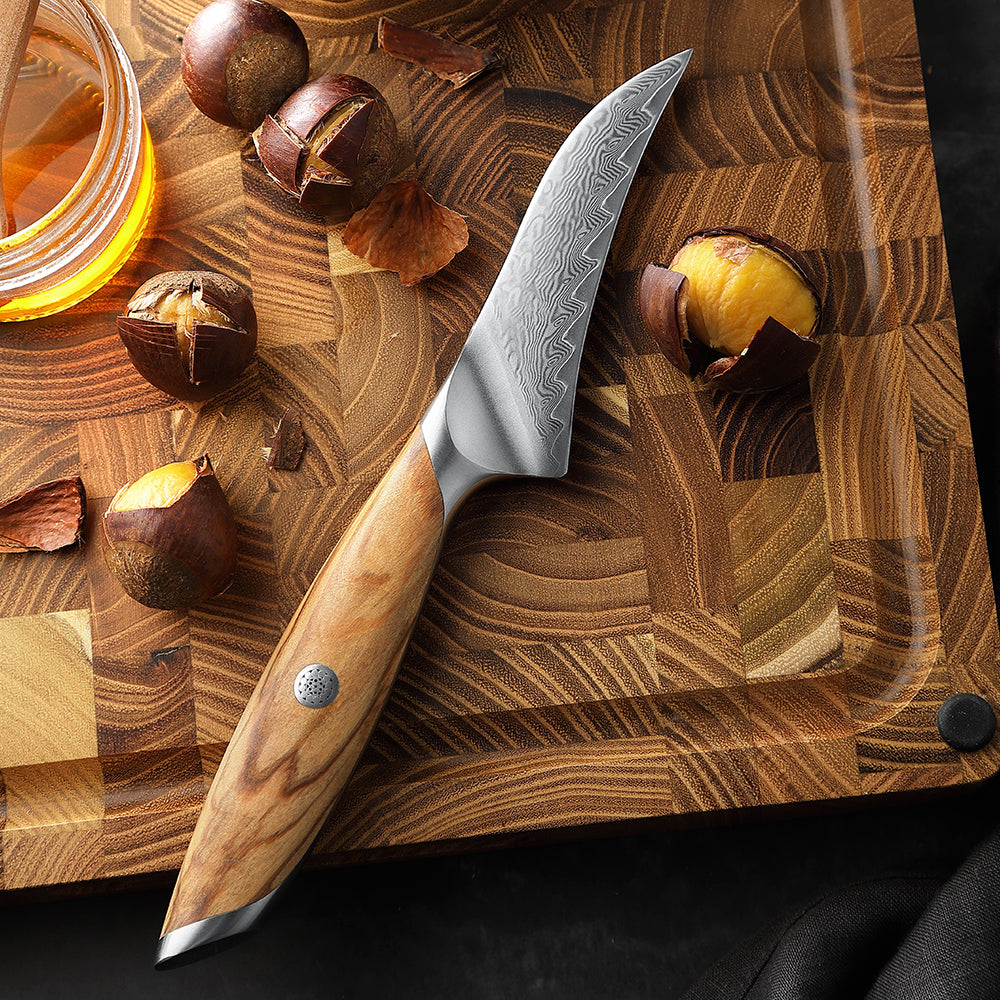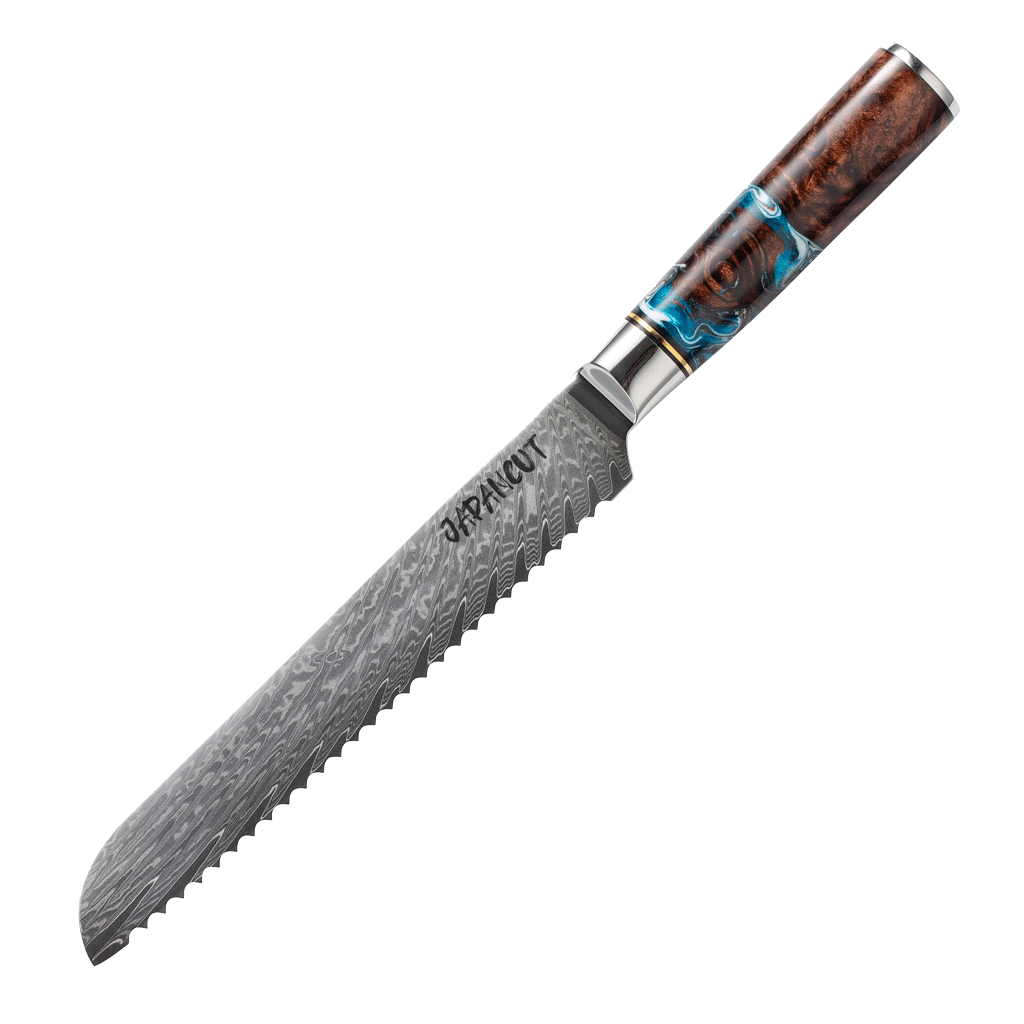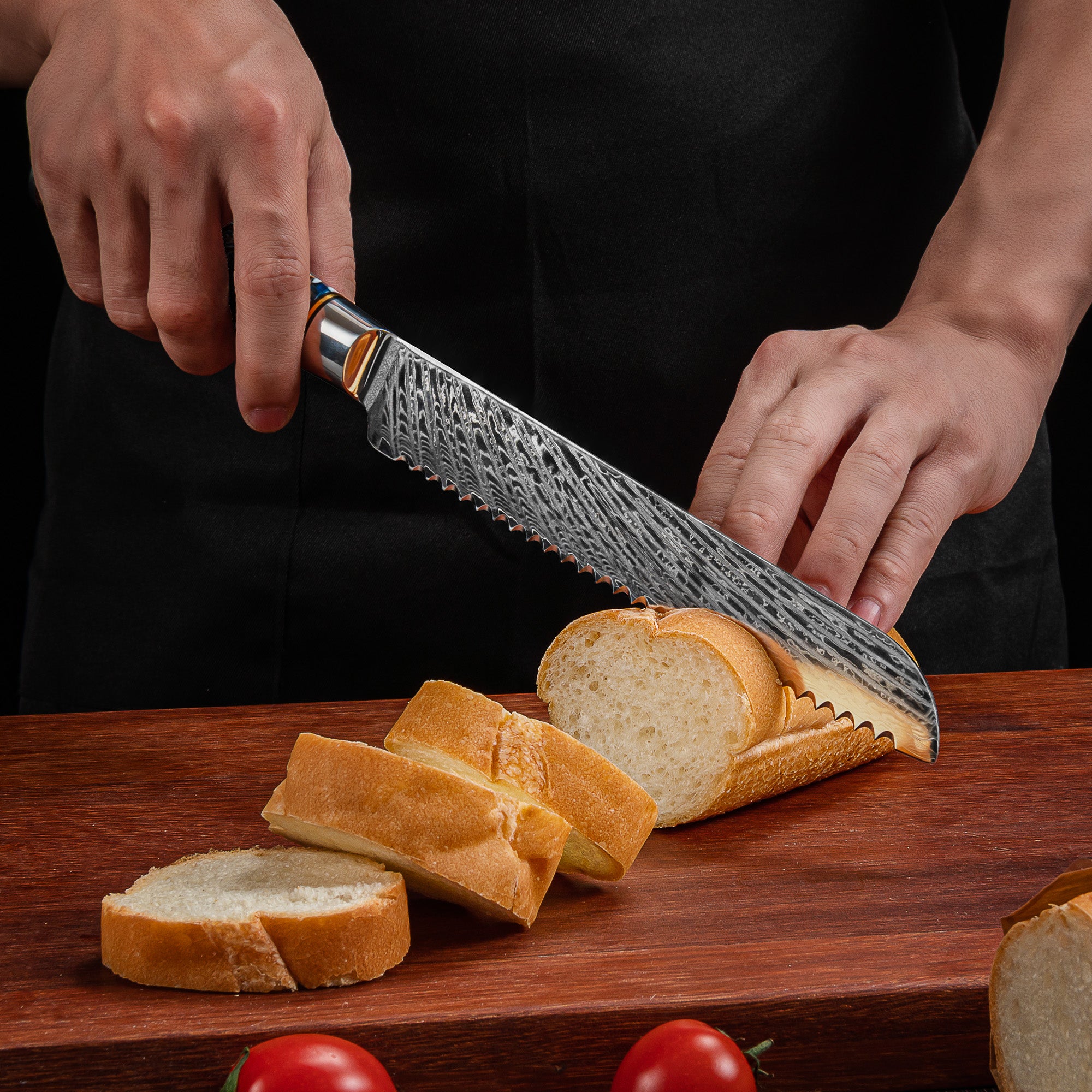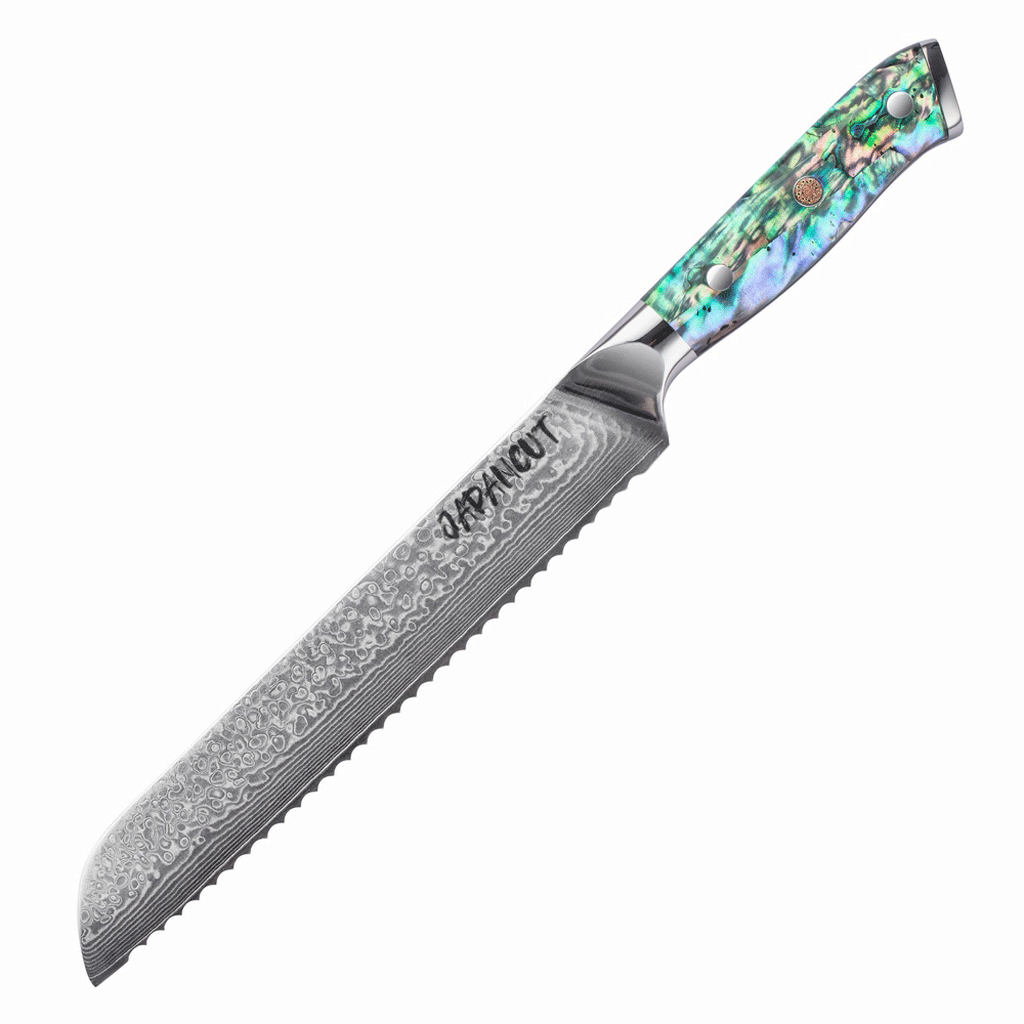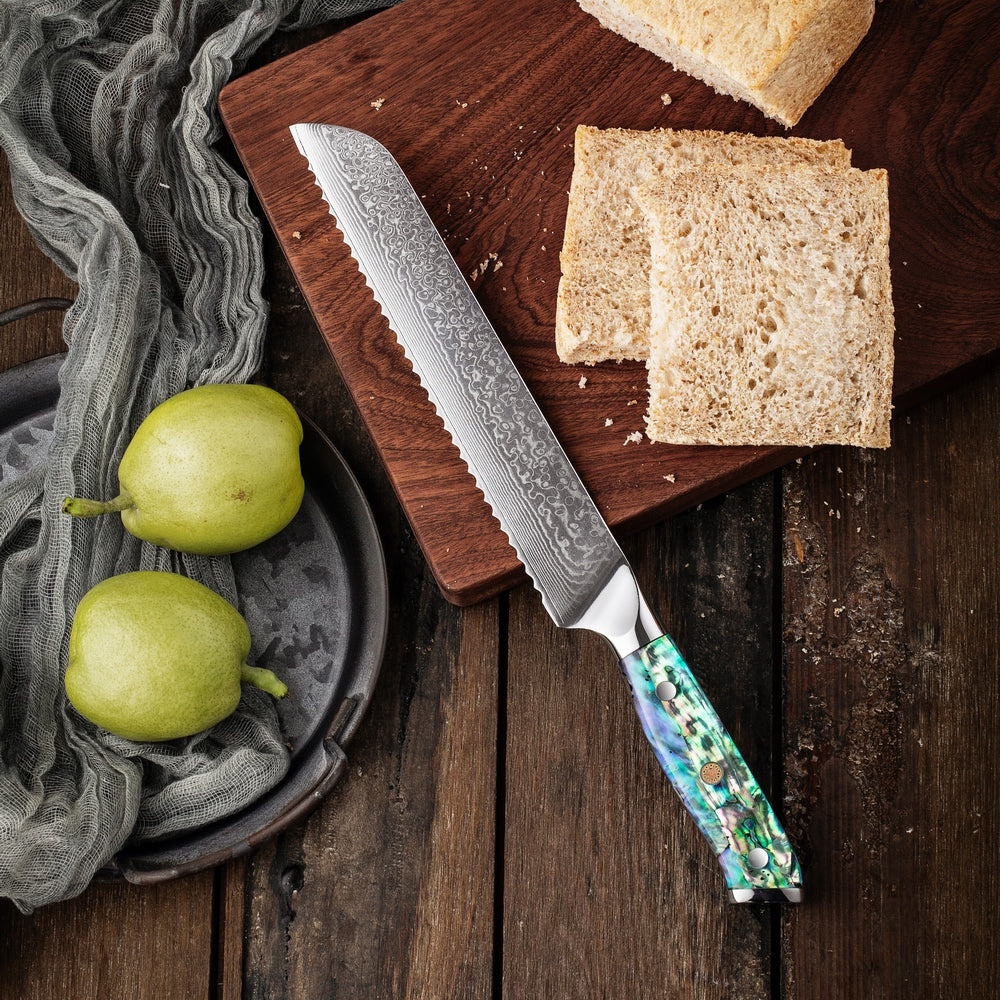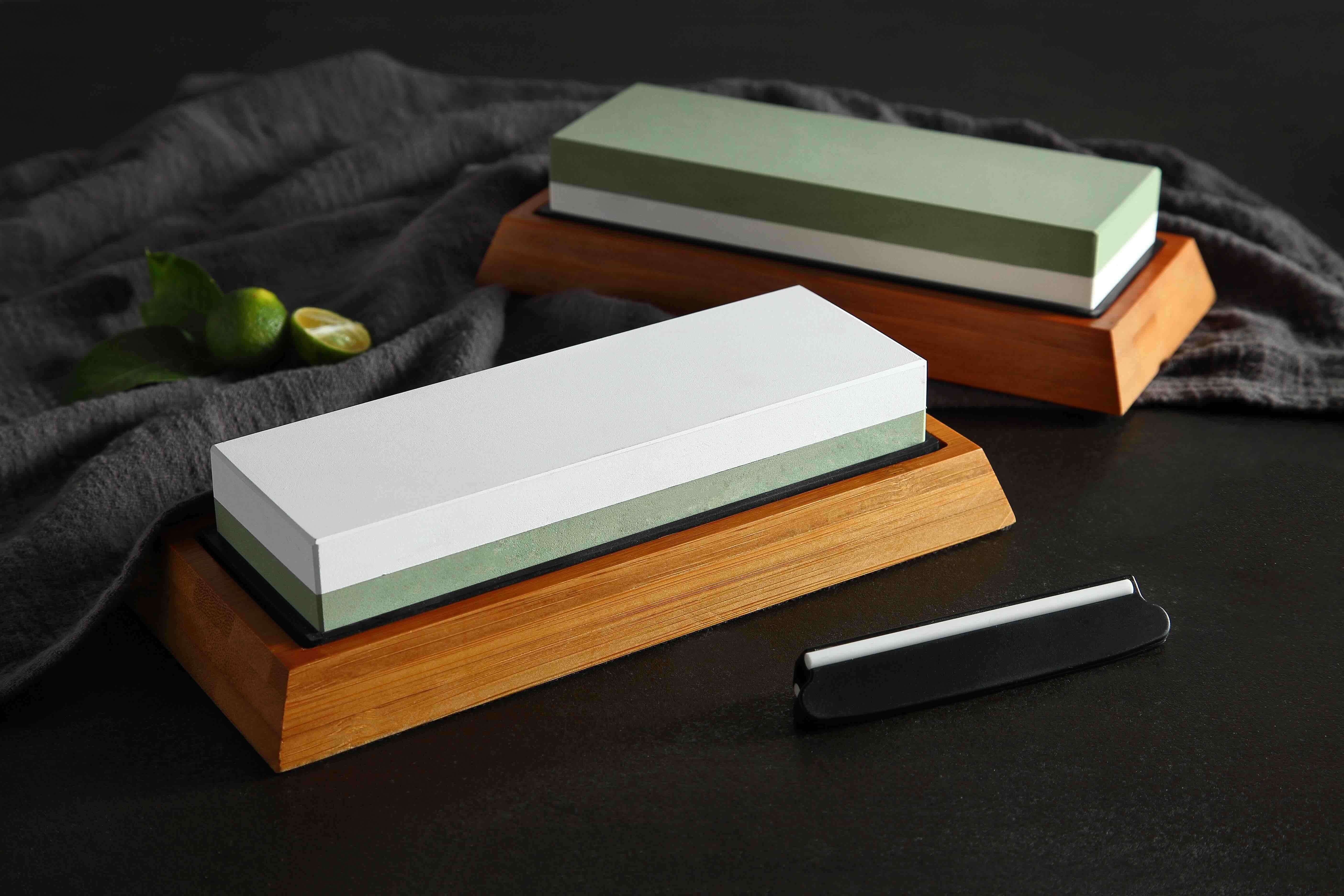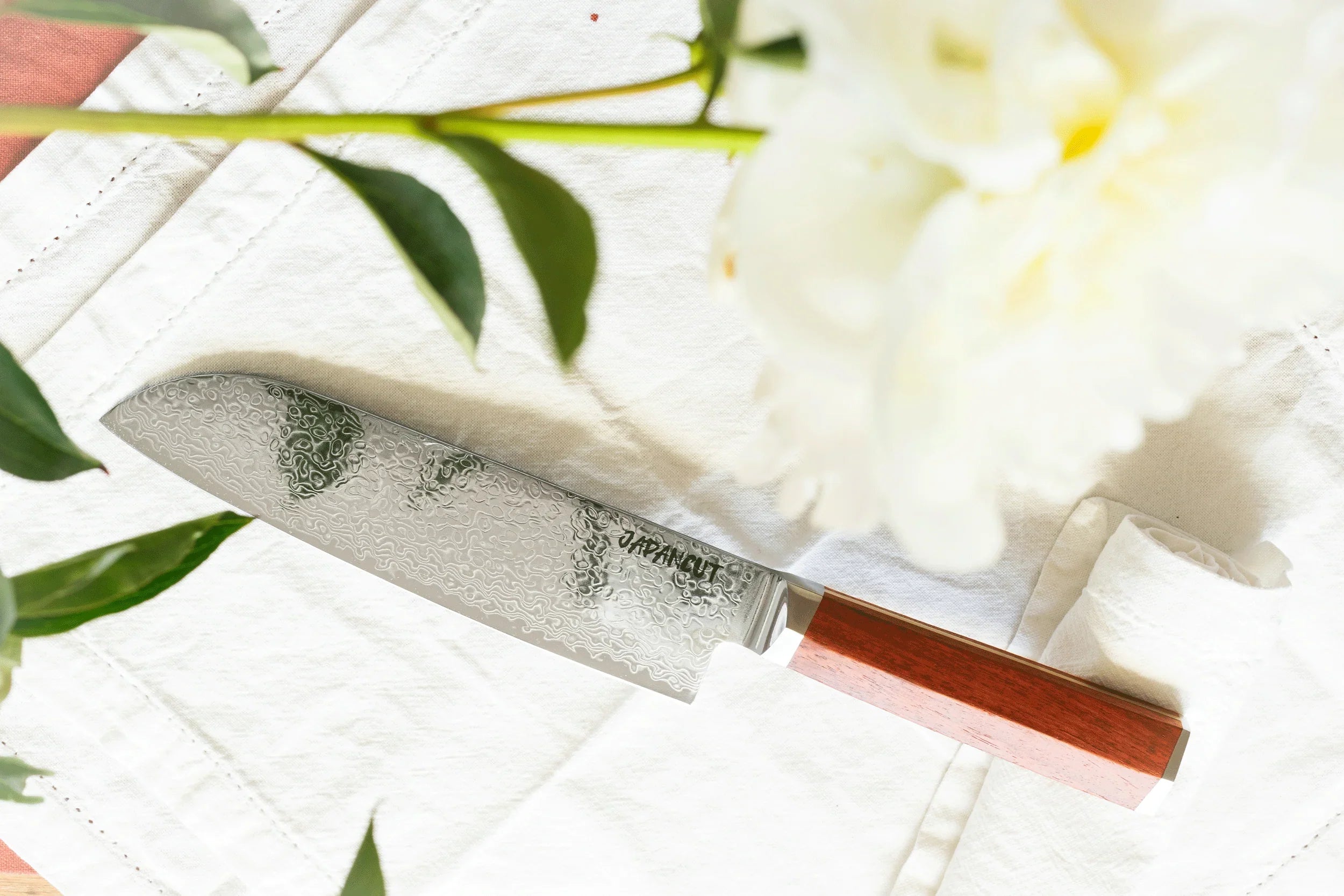
Santoku knife - the all-purpose knife from Japan
Santoku: The versatile kitchen knife for every cook
The Santoku, a traditional Japanese kitchen knife. It is also very popular in western kitchens. With its special shape and versatile uses, the Santoku knife is an indispensable tool for professional chefs and amateur cooks alike. Discover the advantages and properties of this exceptional knife, especially when it is made of high-quality Damascus steel.
Santoku knife: what is it used for?
The word "Santoku" means "three virtues" or "three uses," which describes the knife's three main tasks: slicing, dicing, and chopping. A Santoku knife is characterized by its wide, slightly curved blade, which allows for precise handling and is ideal for meat, fish, and vegetables.
The advantages of a Santoku knife
-
Versatility: A Santoku knife is an all-rounder in the kitchen. Whether you are cutting fine slices of fish, chopping vegetables or dicing meat - this chef's knife masters every task with ease.
-
Ergonomic design: The wide blade and balanced weight ensure comfortable handling and reduce fatigue when cutting. The special hollow grind of the blade prevents food from sticking to the blade.
-
High-quality Damascus steel: Our Santoku Damascus knives are made of multi-layered Damascus steel, which is not only extremely sharp, but also impresses with its unique pattern. This steel ensures a long-lasting cutting edge and outstanding sharpness.
Why choose a Santoku knife made of Damascus steel?
Damascus steel is known for its exceptional hardness and toughness. The production of a Damascus knife requires precise craftsmanship and experience. The multiple folding of the steel not only creates a robust blade, but also the characteristic, wave-like pattern that makes each knife unique.
A Santoku knife made of Damascus steel combines the advantages of traditional Japanese design with the outstanding properties of modern steel. The result is a kitchen knife that leaves nothing to be desired in terms of sharpness, durability and aesthetics.
|
ADVANTAGES |
DISADVANTAGES |
|---|---|
| Unique look thanks to Damascus steel | Higher price due to complex production |
| High sharpness and cutting ability | More sensitive to rust and acids |
| Good balance and ergonomics | Requires more care and attention |
| Longevity with proper care | Not dishwasher safe |
Caring for your Santoku knife
To maximize the lifespan of your Santoku knife, proper care is crucial. Clean the knife after each use with warm water and a mild detergent. Dry it thoroughly and store it in a dry place. Avoid contact with hard surfaces and do not cut on stone or metal cutting boards. Regularly sharpening and honing the blade with a suitable whetstone or whetstone will ensure that your knife always remains ready for use.
Conclusion
A Santoku is more than just a kitchen knife - it is an expression of precision, versatility and aesthetics. With a Santoku knife made of high-quality Damascus steel, you are investing in a chef's knife that will serve you faithfully for years. Discover the variety and outstanding quality of our Damascus knives and experience how a first-class Santoku takes your cooking skills to a new level.
